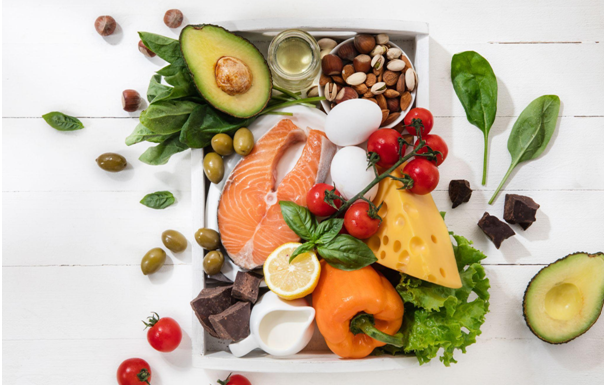
You can support your immune system with a balanced diet that contains proteins, iron, antioxidants and other important vitamins and minerals. A balanced diet with nutrient-rich foods provides the body with the essential vitamins, minerals and other nutrients necessary to help the immune system stay strong. Read on to learn more about the specific nutrients that play a role in maintaining your immune system in order.
Indeed, a recent review in the European Journal of Nutrition and Food Safety found that a variety of vitamins and minerals play an important role in supporting immune health. Studies suggest that a lack of certain vitamins or minerals can lead to a weak immune system and a greater susceptibility to infection.
These foods are high in Vitamin A, Beta-carotene, vitamin C, vitamin E, vitamin D, antioxidants and other nutrients that keep your immune system operating properly. Although some foods and diets may not protect you from being infected with COVID-19, we know that a healthy immune system provides additional protection for your body when you are exposed to the virus. In the days of the scurvy outbreak, it was generally known that vitamin C is an important nutrient for the immune system.
Vitalise your diet by reaching for foods rich in vitamin C like citrus fruits, berries, melons, broccoli, tomatoes and peppers. Make nutrient-rich foods the largest part of your plate and provide a wide range of nutrients needed for the immune system and cell function. These include minerals such as zinc, selenium, iron, copper, omega-3 fats and protein.
Almonds, hazelnuts, peanuts and walnuts are rich in minerals such as zinc, which is essential for maintaining the normal functioning of cells in the immune system.1 Zinc deficiency can reduce the effectiveness of an immune system, so it is vital to maintain the levels of these minerals. However, high doses of zinc supplementation taken over a long period of time can lead to a lack of copper, another nutrient needed for proper immune function.
There is evidence that various micronutrient deficiencies (e.g., lack of zinc, selenium, iron, copper, folic acid as well as vitamins B6 and C) in animals can alter the immune response as measured in the test tube. The effects of these deficiencies on animal health are less clear, but the effects of similar deficiencies on the human immune response have been studied.
A balanced diet high in fresh, unprocessed foods such as fruits, vegetables, nuts, seeds, legumes, whole grains and plant foods can help maintain your immune system strong. If you suspect that your diet does not provide you with your micronutrients (for example, you do not like vegetables), daily intake of multivitamins and mineral supplements can have other holistic health benefits as well as positive effects on the immune system. Even if you have difficulty getting your favorite fruit and vegetables, you should look at frozen or canned vegetables, as frozen fruits and vegetables can also have an effect.
Kiwi fruits and oranges, for example, are rich in vitamin C, which helps protect and maintain healthy cells and tissues. As a result of this vitamin, your body is better able to defend itself against colds and flu. If you take more of these important vitamins and minerals, your immune system will remain happy and healthy and reduce the duration of the cold.
During the flu season and in times of illness, people resort to special foods and vitamin supplements, which are thought to boost immunity. Vitamin C foods such as citrus fruit, chicken soup, tea and honey are popular examples.
These foods are rich in vitamins C, D and other important nutrients that help the body fight infections. Antioxidants Ant antioxidants combat the damage caused by free radical molecules that can damage your body tissue. Good foods that support our immune system, the body’s first defence against infection, are rich in antioxidants that protect our cells from damage and harmful inflammation.
A diet high in fruits and vegetables, olive oil, nuts, seeds and oily fish contains many nutrients such as vitamin A, vitamin C, zinc, vitamin D, B6, B12, copper, folic acid, iron and selenium. Antioxidants such as beta-carotene and vitamin C and E are found in many foods and in fruits and vegetables. Colourful vegetables such as spinach, peppers, strawberries and sweet potatoes are rich in vitamin C and citrus fruits such as oranges and limes.
A diet that is limited in its variety and low in nutrients, e.g. From ultraprocessed foods or without processed foods, can have a negative effect on a healthy immune system. By contrast, a diet rich in whole foods such as vegetables, fruits, nuts, pulses and seafood, but low in ultra-processed foods, can reduce the risk of disease and promote healthy immune function.
Research into the link between diet and immune function is ongoing, and scientists still do not fully understand the link. It is thought that a Western diet high in refined sugars, red meat and little fruit and vegetables promotes the disturbance of healthy gut microorganisms, leading to chronic inflammation in the gut associated with suppressed immunity. The researchers attribute chronic low-grade inflammation and a modified immune response to Western diets, a sedentary lifestyle and exposure to toxins as causes.
It regulates the cells and organs of our body, such as the spleen, thymus, bone marrow and lymph nodes. The development of our immune system is complex and is influenced by an ideal balance of many factors, not just diet and not just a specific food or nutrient. A diet can be holistic healthy for immune function, but a diet high in ultra-processed foods, added sugars and excess calories can lead to a breakdown of the immune system, while a diet rich in wholesome, nutritious foods can promote immune function.
Since many nutrients are involved in normal immune system function, keeping a healthy and balanced diet is the best way to support immune function. A healthy diet, including lots of fruit and vegetables, is a key component of a holistic health lifestyle and plays a vital role in supporting the function of an effective immune system that protects against infections and other diseases. Certain factors such as lifestyle, age, health status, gender and medicines can influence an individual’s nutritional state.3 During the COVID-19 pandemic, the individual’s nutritional status was used as a measure of his or her resilience to destabilization.1 Optimal nutrition or food intake influences immune system gene expression, cell activation, signalling and molecule alteration.

